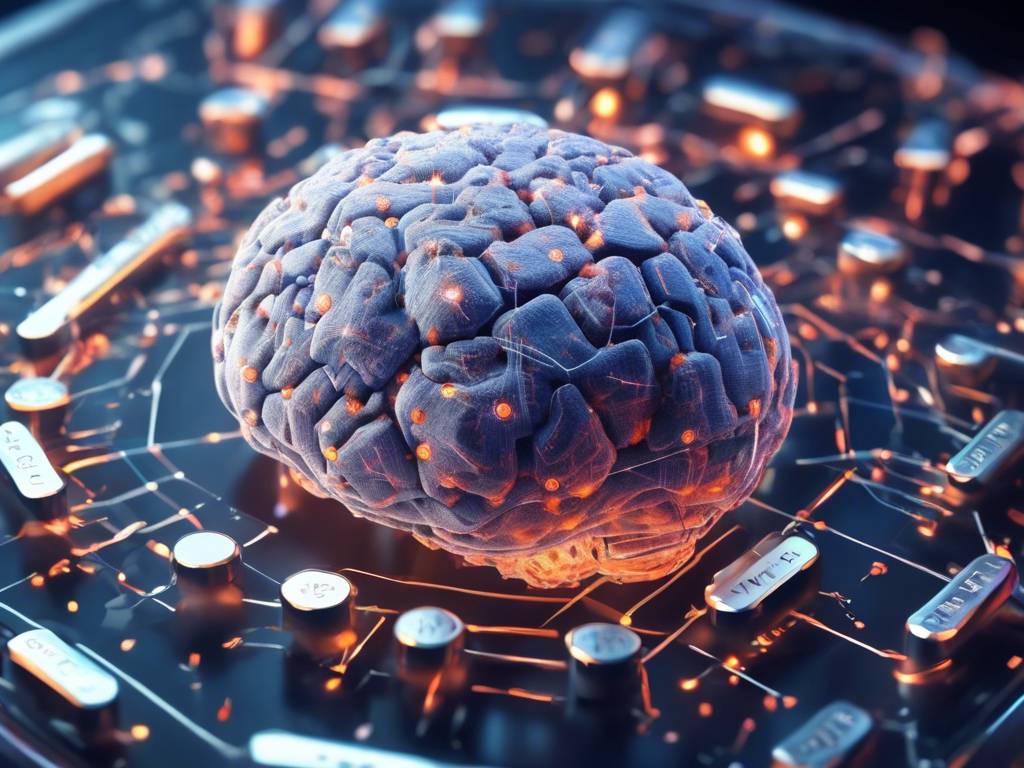Decoding Dr. Scott Gottlieb’s Insights on the AI Drug Revolution and Bird Flu Outbreak in Cattle 🧬🐦
Dr. Scott Gottlieb, former FDA commissioner and biotech expert, delves into the advancements in AI technology within the pharmaceutical industry. With a focus on AI-based drug development and the potential impact on drug discovery and development, Dr. Gottlieb sheds light on the intersection of technology and healthcare.
The Role of AI in Drug Development 🤖💊
AI tools have long been utilized in drug development, with recent advancements in large language models transforming the landscape. The integration of AI chatbots and models into drug discovery processes is boosting efficiency and innovation.
- Drug developers have historically leveraged AI tools for tasks like in silico drug design and dose finding.
- Today, large language models are revolutionizing drug Discovery and Development by offering a new approach to problem-solving.
- Partnerships between pharmaceutical companies and AI providers, such as Microsoft and open AI, are driving AI adoption in the industry.
Building Models for Human Biology 🧬🔬
One key challenge in AI drug development is the lack of high-quality clinical data training sets tailored for human biology. By focusing on biology-specific models and training sets, researchers aim to enhance the efficiency and accuracy of drug development processes.
- Current AI models are primarily borrowed from the consumer tech realm and may not fully align with the complexities of human biology.
- Efforts are underway to develop models based on biological studies spanning decades to address the nuances of human biology.
- The goal is to create models that accurately reflect the interactions within the human body to optimize drug design and development.
Accelerating Drug Development Through AI 🚀💉
AI-driven approaches in drug development promise to streamline processes, enhance target identification, and expedite drug delivery to market. By leveraging AI for computational modeling and target discovery, researchers can revolutionize the way drugs are developed and deployed.
- AI tools are utilized across various stages of drug development, from application preparation to post-market surveillance.
- A deeper understanding of disease biology through AI models could lead to the identification of novel drug targets and combination therapies.
- Companies like Zyra are pioneering AI-based drug development, focusing on protein-based drugs and intelligent antibody design.
Transforming Disease Understanding 🧪🔍
The complexity of disease mechanisms, involving numerous genes and molecular interactions, necessitates a holistic approach to drug design. AI models offer insights into multifaceted disease processes, enabling the development of targeted therapies and personalized treatment strategies.
- By integrating AI models into drug development, researchers can uncover hidden disease targets and design innovative treatment approaches.
- AI-based tools like David Baker’s RF diffusion and Google’s AlphaFold are reshaping the landscape of protein and antibody design.
- Current AI applications in drug development showcase tremendous potential, with ongoing efforts to refine and optimize AI-driven processes.
Addressing Public Health Concerns and Outbreaks 🏥🦠
Amidst public health concerns such as the detection of avian flu in the nation’s milk supply, Dr. Gottlieb reassures consumers about the safety of pasteurized milk. By elucidating the origins of viral remnants and emphasizing the importance of regulatory testing, he addresses critical issues related to food safety and regulatory oversight.
- Concerns surrounding avian flu in the milk supply highlight the need for robust regulatory testing and surveillance measures.
- The potential risks associated with viral contamination underscore the importance of stringent quality control processes in food production.
- AI-driven approaches in public health monitoring could enhance early detection of outbreaks and facilitate targeted interventions to mitigate risks.
Navigating the Interface of Animal and Human Health 🐄👨⚕️
The intersection of animal and human health poses challenges and opportunities for disease control and prevention. By adopting a multidisciplinary approach to infectious disease surveillance and management, stakeholders can address emerging threats and safeguard public health.
- Collaboration between regulatory agencies, healthcare providers, and agricultural stakeholders is essential to address cross-species disease transmission.
- Innovative technologies, such as AI and genomic surveillance, offer new avenues for monitoring and containing infectious disease outbreaks.
- Educating consumers about food safety practices and regulatory standards is crucial in maintaining public trust and confidence in the food supply chain.
Hot Take: Embracing AI Innovation in Healthcare 🌟🏥
As AI continues to revolutionize drug development and healthcare delivery, stakeholders must remain vigilant in safeguarding public health and advancing scientific research. By harnessing the power of AI technologies and data-driven insights, the healthcare industry can drive meaningful progress and improve patient outcomes.





 By
By

 By
By

 By
By